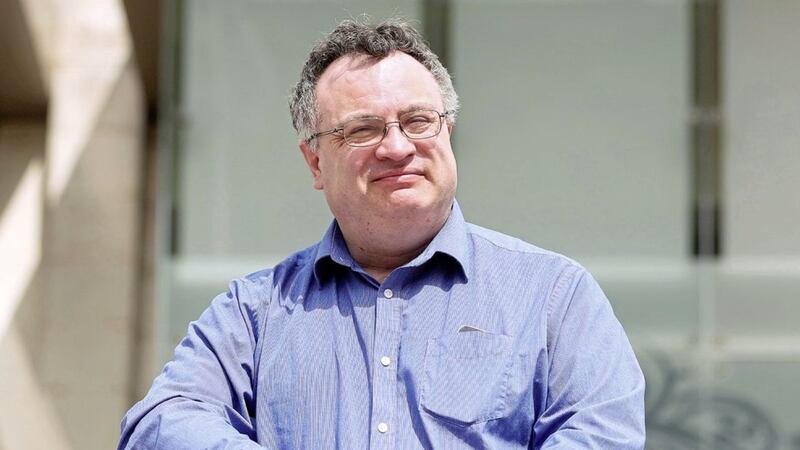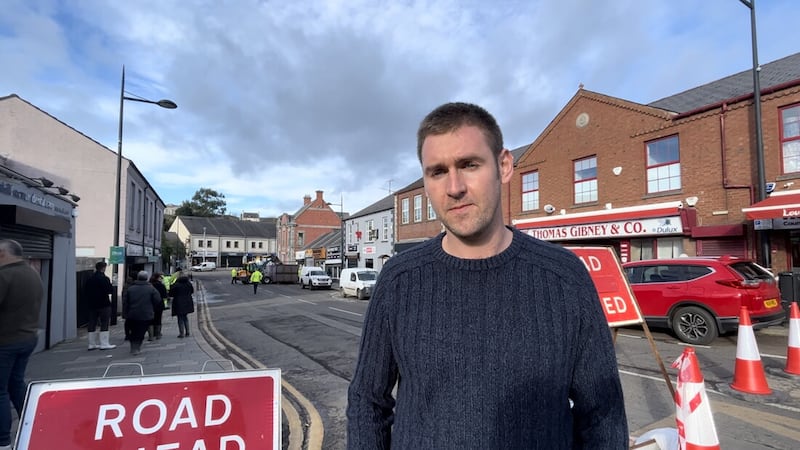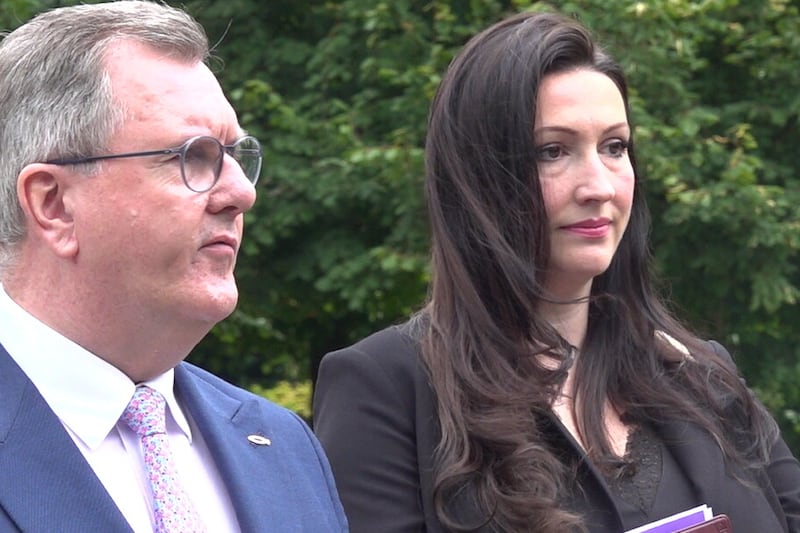NORTH Down has historically been a unionist seat but its MP of the past seven-and-a-half months doesn’t subscribe to that particular label. Stephen Farry, who won a surprise victory in December’s election with a majority of almost 3,000, instead describes himself as a “liberal with a small L”.
The Alliance deputy leader insists his party isn’t defined by the “constitutional question”, something he regards as a strength rather than a weakness: “It’s allowed us to expand and attract people from all sides of the community – we’re a big tent party that can bring together different aspirations.”
He does, however, recognise that constitutionally there is a “fluid situation… right across these islands”.
“It’s not just the island of Ireland – there are issues regarding the future of Scotland, English devolution and all that,” he says.
Representing a constituency that voted to remain in the EU, he believes Brexit – the “great disrupter” – is the key driver in this shifting dynamic. In his role as an MP he is seeking to ensure the Ireland/Northern Ireland Protocol impacts minimally on trade in all directions but concedes he doesn’t trust Boris Johnson, who has promised the north’s businesses “unfettered access” to markets in Britain.
He says the British prime minister is adept at repeating soundbites but “isn’t across the detail”.
And Brexit isn’t the only area where the North Down MP believes the Tory leader is found wanting.
“At times Johnson and his government act as if they’re the government of England and take the Celtic nations almost for granted,” he says.
Things will come to a head next year after the Scottish Parliament elections, Farry reckons, when the SNP is expected to win a majority and seek an independence referendum – something Johnson has vowed to deny them.
“What is currently seen as Johnson’s impregnable position with an 80-seat majority could very quickly become a situation where he presides over the break-up of the United Kingdom,” the Alliance deputy leader speculates.
“That’s probably his biggest Achilles heal at present and he isn’t really grasping that – Brexit is a key component in Scottish alienation.”
Asked if he thinks Scotland will vote for independence when the opportunity arises, Farry says “more likely than not”.
He’s less fatalistic when it comes to a united Ireland though, yet he won’t shy away from the “conversations that need to take place”, including discussions with the Dublin government’s new Shared Ireland Unit, adding that if there were a process aimed at “reimagining the UK”, Alliance would engage with it.
“What we want to see is a situation where things are discussed in a rational, constructive way, and based upon evidence,” he says.
“We will judge everything that emerges from those discussions on its merits.”
He acknowledges that engagement with the Shared Ireland Unit is difficult for political unionism but that it is in its interests to be involved.
“Everyone has to recognise that while change may not happen, equally it may happen and it’s important that you are part of those conversations and that you reflect your perspective and try to shape any discussions,” he says.
“Equally, there are many complications around constitutional change, particularly from an economic and financial point of view that need to be properly stress tested.”
A discussion about a shared Ireland “works both ways”, he says.
“Dialogue isn’t necessarily a one-street – us having a discussion around some kind of shared Ireland isn’t Alliance joining an escalator where there’s an inevitable destination.
“At the same time you may have those conversations and people may realise that (their preferred outcome) is really difficult and really problematic.”
The Alliance deputy leader thinks talk of a border poll is premature as “we don’t believe the conditions are met”.
He concedes there’s “evidence that people are looking at things differently” but his party’s priority is to focus on “getting this place working, building an integrated society and promoting reconciliation”.
“But if and when someone calls a vote we’ll make a call based on the prevailing circumstances at the time and based on our own values,” he says.
In the meantime, Mr Farry argues that cross-border cooperation should go much farther than it has done, believing the administrations in Dublin and Belfast could do more to strengthen relations without “negating people’s right to advocate for change”.
Regardless of constitutional change, he believes there are numerous economic, social and environmental partnerships and projects that can be developed far beyond the current level of north-south cooperation.
“I found the north-south intergovernmental process to be fairly stage-managed and stilted – I don’t think it’s really developed as far as it could,” he says of the most senior cross-border institution.
He feels the areas of north-south co-operation outlined in the Good Friday Agreement were limited and that the cross-border bodies have failed to fulfil their potential.
“Things evolved in a different way than the authors of the agreement perhaps imagined.” he says.
Recounting his own experiences of the North-South Ministerial Council when a Stormont minister,he says it “wasn’t really taking things on to the next level”.
“There was a set number of projects that were happening and moving at a certain pace but there wasn’t a really focused scoping exercise happening where people would sit down and systematically go through the full opportunities to see if they could do more in a certain area,” he says.
“Even if you look at the Irish government’s 2040 National Development Plan it wasn’t really looking at the island in an integrated way – it was more looking at more expansion southwards and westwards on the island rather than to the north – Dublin could do more and Belfast could more.”
He believes with new governments north and south “there’s a chance to formulate a new relationship”.
Mr Farry is a supporter of a high-speed rail link between Belfast and Dublin (and Cork), characterising it as a “landmark project” for the island that would “make a real fundamental statement”.
He believes it would be “compliant with the new era”, while “beyond the symbolism it consolidates that north-south corridor”.
“Things that can be done in conjunction with people’s aspirations or separate from people’s aspirations, depending upon how you feel about it, but that all-Ireland context is still one that’s radically underdeveloped,” says the Alliance deputy leader.








